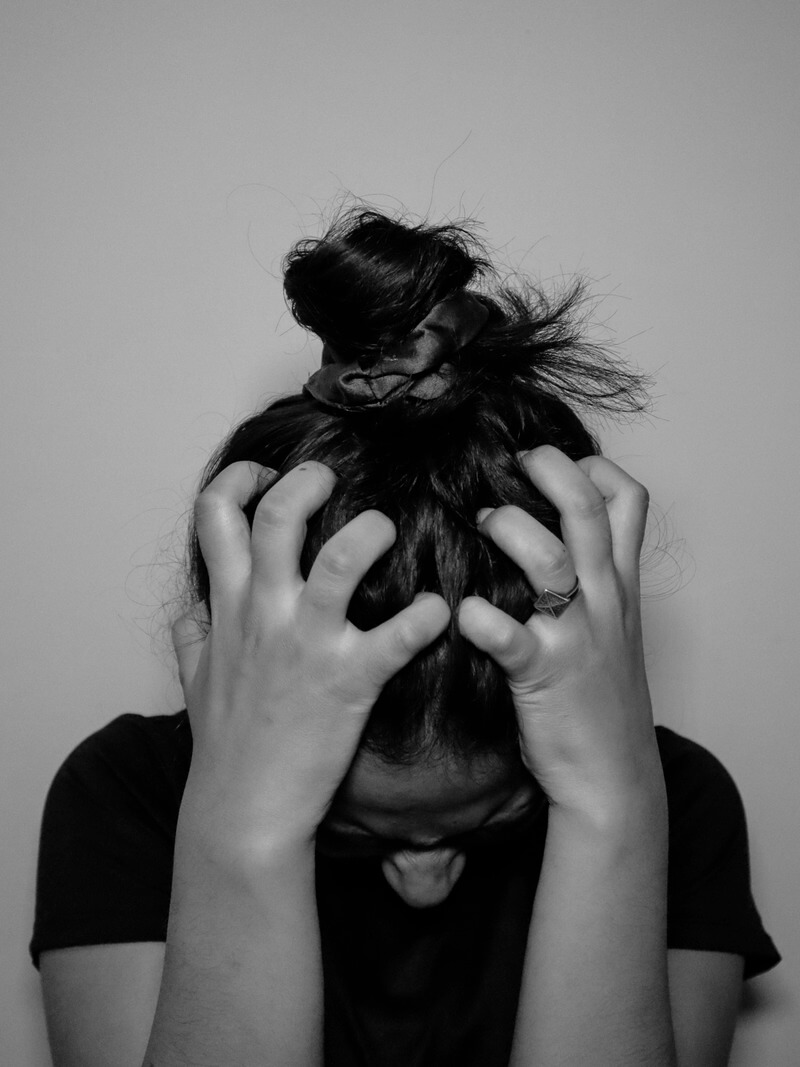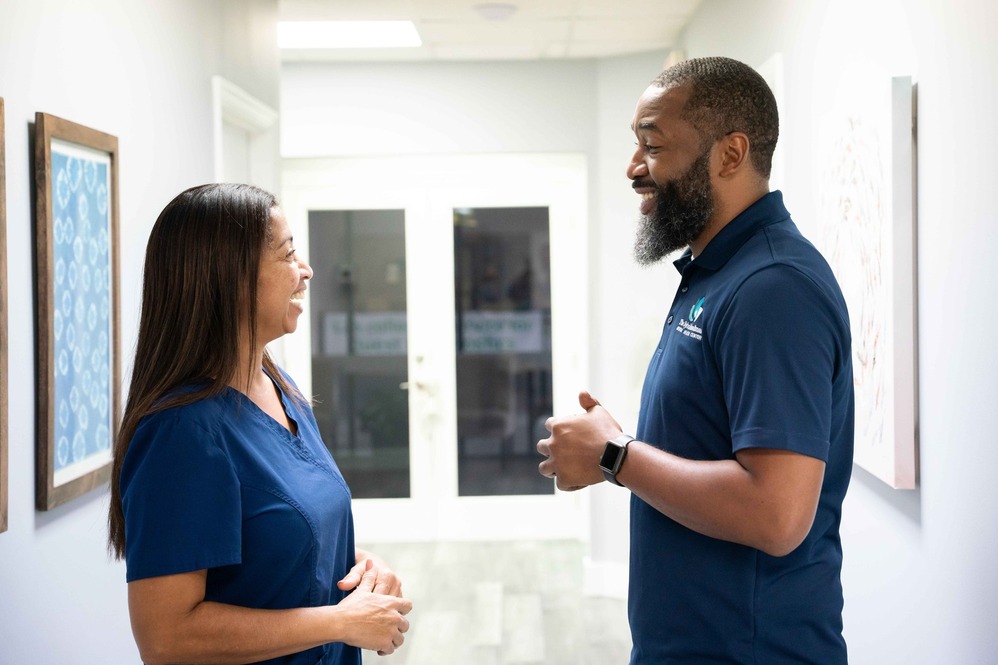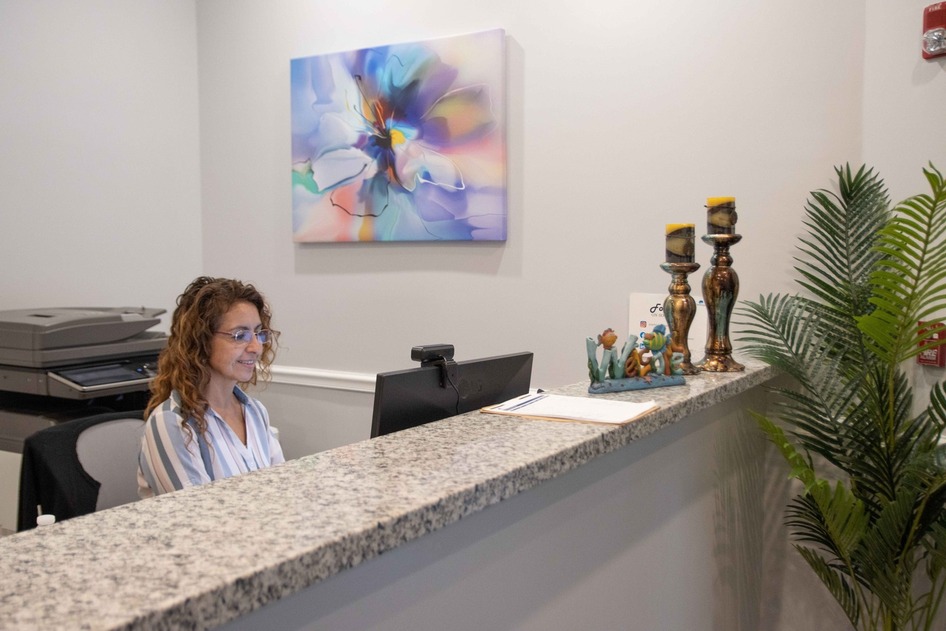The Sylvia Brafman Mental Health Center is a leading healthcare facility successfully treating adult mental health conditions, including personality disorders and schizophrenia spectrum conditions. We incorporate evidence-based, goal-oriented therapies into personalized treatment plans for optimal results-driven care. Call 877-958-9212 for immediate support or continue reading to learn more about treatment for schizoaffective disorder near Atlanta, Georgia.

Schizoaffective Disorder Treatment and Therapy Center Near Atlanta, Georgia
What Are Schizoaffective Disorders?
Schizoaffective disorders are mental health conditions that combine symptoms of schizophrenia and mood disorders like depression or bipolar disorder. This psychotic mood disorder involves episodes of psychosis, including delusions or hallucinations, along with significant mood shifts. Schizoaffective symptoms impact the ability to function normally in daily life.
The exact schizoaffective disorder causes are not fully understood, but the condition is believed to result from a combination of genetic, biological, and environmental factors. A family history of mental health disorders, brain chemistry imbalances, and stressful life events may increase the risk of developing the disorder. Research suggests that abnormalities in neurotransmitters like dopamine and serotonin may also play a role in its development.
Management requires a combination of schizoaffective disorder medications like antipsychotics, therapy, and other support services. Schizoaffective disorder management focuses on stabilizing mood and reducing psychotic symptoms. Professional treatment is essential for improving schizoaffective disorder and daily functioning, as the condition can severely affect occupations, relationships, and overall well-being. Treatment is key to helping individuals living with schizoaffective disorder lead fulfilling lives.

What Are Different Types of Schizoaffective Disorders?
Schizoaffective disorders can vary in terms of symptoms and severity, and different types reflect these variations. The two primary types are the bipolar type and the depressive type. Each is distinguished by the nature of the mood symptoms present alongside psychotic experiences, such as delusions and hallucinations. Understanding these variations can help in tailoring schizoaffective treatment options.

What are Schizoaffective Disorder Symptoms and Signs?
Schizoaffective disorder symptoms can vary widely from person to person, making it a complex condition to identify. Schizoaffective symptoms typically include a combination of mood disturbances and psychotic features, which can significantly impact daily functioning. Each of these signs highlights the blend of psychosis and mood issues central to the condition.
Recognizing these signs is an essential step toward understanding the disorder and seeking appropriate schizoaffective disorder interventions.
- Delusions: False beliefs that are not based in reality, such as thinking someone is out to harm you. These are hallmark psychotic symptoms.
- Hallucinations: Hearing voices or seeing things that aren’t there which can be distressing and isolating.
- Depressed Mood: Relentless feelings of sadness or hopelessness, common in depressive-type schizoaffective disorder.
- Manic Episodes: Periods of heightened energy, impulsive behavior, or euphoria frequently seen in the bipolar type.
- Disorganized Thinking: Difficulty organizing thoughts or speaking coherently, significantly affecting communication.
- Difficulty Functioning: Trouble maintaining work, relationships, or daily routines due to the combination of symptoms.
What is a Schizoaffective Disorder Treatment Program?
A schizoaffective disorder treatment program is a structured plan designed to help you or your loved one manage schizoaffective disorder symptoms, improve daily functioning, and achieve long-term recovery. Typically offered at a specialty treatment center or schizoaffective disorder rehabilitation center, these programs combine medical care, therapy, and education to address the unique challenges of this complex condition.
Treatment programs often include psychoeducation for schizoaffective disorder to help individuals and their families understand the illness and its management. Dual diagnosis treatment is available at co-occurring disorders treatment centers for those with common concurrent conditions like substance use disorders. These programs teach coping strategies for schizoaffective disorder, enabling you to handle stress, improve relationships, and enhance your quality of life.
What Types of Treatment Programs Are Available for Schizoaffective Disorder Around Georgia?
If you’re seeking schizoaffective disorder treatment around Georgia, various programs offer comprehensive care. For example, residential treatment for schizoaffective disorder provides 24/7 support in a structured environment, and many recovery centers take a holistic approach to schizoaffective disorder, incorporating mindfulness, nutrition, and physical wellness.
These options and others outlined below are tailored to promote long-term recovery and well-being. To determine the most suitable level of care for your unique needs, contact The Sylvia Brafman Mental Health Center for a free assessment.

At The Sylvia Brafman Mental Health Treatment Center in Fort Lauderdale, Florida, our team of dedicated professionals is ready to guide you. We offer schizoaffective disorder treatment and a variety of mental health treatment programs, each uniquely designed to meet your needs. We’re also able to offer accommodation at affordable rates if you’re traveling from out of state. So don’t wait—reach out to us today! Either give us a call or fill out the form below to request a callback.
"*" indicates required fields

What Types of Therapy and Counseling Are Available for Schizoaffective Disorder Around Georgia?
There are various schizoaffective disorder counseling and therapy options available around Georgia, though the following are just examples, not a complete list. Many holistic treatment centers, including The Sylvia Brafman Mental Health Center, combine therapy with practices like mindfulness and nutrition to support overall well-being and healing. All therapies are tailored to meet your individual needs for long-term recovery.

Does Private Health Insurance Cover Therapy and Treatment for Schizoaffective Disorder in Georgia?
Yes. Private health insurance commonly covers therapy and treatment for schizoaffective disorder in Georgia. The specifics can vary. Most policies include coverage for inpatient and outpatient care, psychotherapy sessions, and medication management. However, it’s always important to check your insurance policy details to understand the exact coverage and any limitations so you’re not met with any surprises.
To ensure you receive the full benefits, review your plan carefully, including copayments, deductibles, and coverage for mental health services. You may also want to contact your insurer to verify which treatment centers, therapists, and medications are covered under your plan. Contacting a healthcare provider like the patient advocates at Sylvia Brafman can also provide access to this pertinent information.
Which Health Insurance Providers Cover Schizoaffective Disorder Treatment Near Atlanta, Georgia?
Several major health insurance providers cover schizoaffective disorder treatment near Atlanta, Georgia, including Blue Cross Blue Shield, Aetna, Cigna, and UnitedHealthcare. Coverage may extend to inpatient and outpatient services, therapy, medication management, and tailored support for daily functioning. However, the extent of coverage can vary significantly from one plan to the next.
It’s essential to confirm what is included in your plan for mental health services prior to participating in treatment for schizoaffective disorder near Atlanta, Georgia. Each insurance provider offers a range of plans with varying levels of coverage, so be sure to review your policy details or speak with a representative to ensure that your treatment needs are covered. Alternatively, you can contact us for streamlined assistance and information.

How to Find a Schizoaffective Disorder Therapy and Treatment Center Near Me
Finding an accredited schizoaffective disorder treatment near you is simple with the support of The Sylvia Brafman Mental Health Center. Our dedicated patient advocates are ready to help you explore the best treatment options that fit your specific needs and challenges. For personalized guidance, call 877-958-9212.
We offer a confidential, free schizoaffective disorder test to identify the most appropriate treatment plan for schizoaffective disorder management. These no-cost assessments are key to developing a tailored approach that addresses your unique symptoms and goals. Reach out today to initiate your path toward recovery.
- The Sylvia Brafman Mental Health Center, 7710 NW 71ST CT, Tamarac, Florida, 33321
At The Sylvia Brafman Mental Health Center, we acknowledge the importance of finding the proper therapy for your circumstances and preferences. After all, investing in your mental health is one of the single most essential investments you’ll ever make. Below, we’ve provided a handy guide to finding the best schizoaffective treatment options for you:
- Consult with Healthcare Professionals: Ask your primary care physician, psychiatrist, or mental health professional for recommendations and referrals to reputable schizoaffective disorder treatment centers near you.
- Use Online Search Engines: Search online using specific keywords like “schizoaffective disorder treatment center near me” or “dual diagnosis treatment center for schizoaffective disorder in (location),” followed by specific location names. Explore potential treatment centers’ websites.
- Check Mental Health Directories: Refer to official health organization directories to find centers specializing in schizoaffective disorder treatment.
- Contact Local Mental Health Organizations: Reach out to local organizations or advocacy groups for recommendations on treatment centers.
- Explore Online Reviews and Testimonials: Read reviews on platforms like Google, Yelp, or specialized healthcare websites for insights on treatment centers.
- Insurance Provider Assistance: Connect with your health insurance provider for a list of covered, in-network mental health treatment centers.
- Visit University Hospitals and Medical Centers: Research academic medical treatment centers or university hospitals with psychiatric departments offering specialized programs.
- Connect with Local Mental Health Hotlines: Reach out to local helplines for guidance on rehabilitation center options.
- Seek Referrals from Support Groups: Join schizoaffective disorder support groups and ask for recommendations from peers.
- Verify Accreditation and Licensing: Ensure the selected recovery center is accredited, licensed, and staffed with qualified professionals.

Are There Free and Confidential Schizoaffective Disorder Assessments Near Me?
Yes, there are free and confidential schizoaffective disorder assessments available to help you understand your symptoms and get the support you need. Many mental health centers, therapy clinics, and organizations offer these assessments to guide you toward the most appropriate schizoaffective disorder treatment options.
A schizoaffective disorder test can provide valuable insight into your condition, allowing professionals to recommend the best path for your care and recovery. At The Sylvia Brafman Mental Health Center, we offer free and confidential assessments. Our team of professionals is dedicated to providing an accurate evaluation and helping you navigate the next steps in your recovery. Reach out today for a thorough, compassionate assessment to ensure you receive the care you deserve.
What is the Admissions Process for a Schizoaffective Disorder Therapy Program?
The admissions process for a schizoaffective disorder therapy program ensures that you receive the proper care and support throughout your treatment. While each treatment center may have its own specific steps, you’ll first need to make initial contact with the treatment center. This can be done by phone, email, or through their website.
During this stage, you’ll discuss your symptoms and any concerns with an admissions representative who will guide you through the next steps. Following that, an assessment and evaluation will take place, where professionals will gather detailed information about your mental health history, current schizoaffective disorder symptoms, and treatment needs. This helps them understand your condition and tailor schizoaffective disorder interventions specific to you.
Insurance verification is a key part of the process, as the treatment center will check your insurance policy to confirm coverage for the program and any associated out-of-pocket expenses or prior authorization requirements. Once insurance is verified, the treatment team will collaborate with you to develop a comprehensive treatment plan that addresses your specific needs, goals, and any co-occurring conditions. Next, admissions coordination will occur, ensuring all logistics—such as scheduling and paperwork—are in order for your treatment to begin smoothly.
Before starting, you’ll go through an orientation where you’ll be introduced to the program structure, goals, and expectations. Active participation in treatment will be expected from you. Finally, your progress will be regularly monitored, with adjustments made to your treatment plan as necessary to ensure you receive the most effective care throughout your recovery.

How Much Does Schizoaffective Disorder Treatment Cost in Georgia?
The cost of schizoaffective disorder treatment in Georgia can vary widely depending on the type of care you need. For inpatient treatment, fees may range from $1,000 to $2,500 per day. According to GoodRx, the only FDA-approved antipsychotic medication for schizoaffective disorder ranges from $23 to $126 per month, depending on the brand and dosage.
Additionally, therapy and schizoaffective disorder counseling services can add to the overall cost of treatment. Insurance can significantly reduce these expenses, resulting in nominal out-of-pocket expenses related to copayments and deductibles. For a more accurate estimate of schizoaffective disorder treatment costs in Georgia, contact the treatment providers of interest.
How Much Does Schizoaffective Disorder Treatment Cost in Georgia Without Health Insurance Coverage?
Without health insurance coverage, the cost of schizoaffective disorder treatment in Georgia can be significant. Inpatient treatment can range from $1,000 to $2,500 per day, while outpatient therapy sessions typically cost between $100 and $200 each. Fortunately, many healthcare facilities, including Sylvia Brafman, are dedicated to facilitating access to the necessary care.
Don’t allow these average estimates to deter you from seeking mental health support. Many treatment centers offer payment plans, sliding scale fees, or financial assistance to make care more accessible. Some programs may also provide discounted rates based on income or other factors, so contacting treatment centers directly is worth it when exploring your options.



